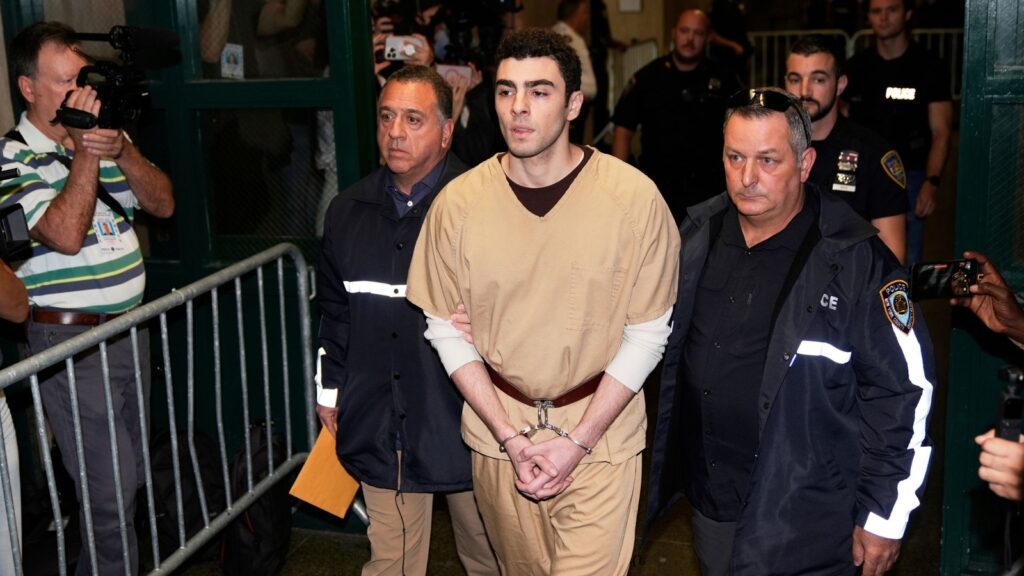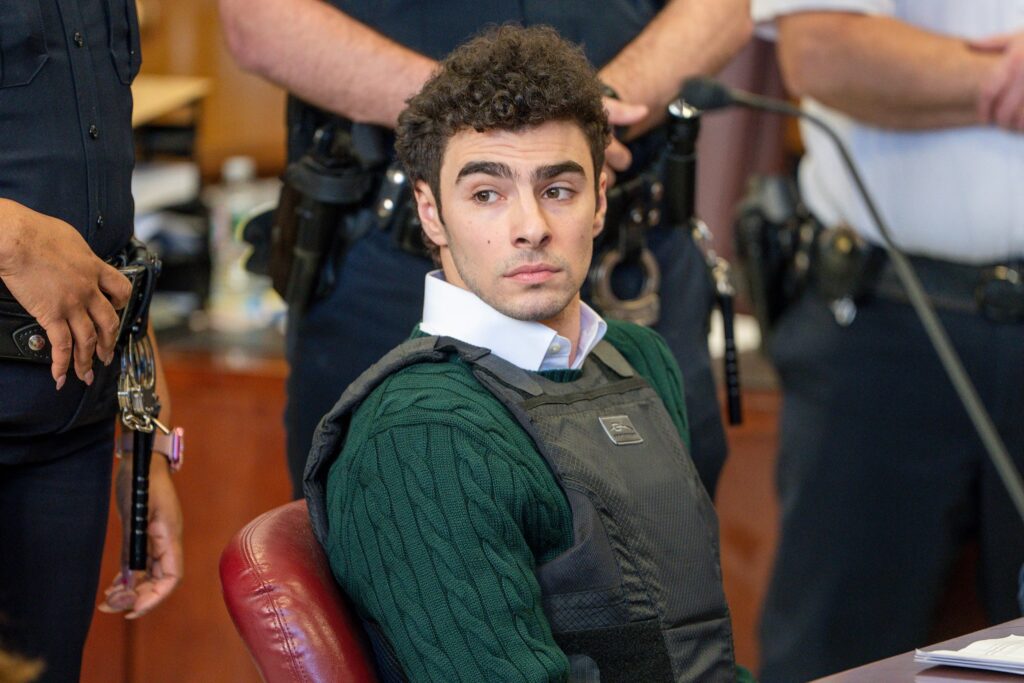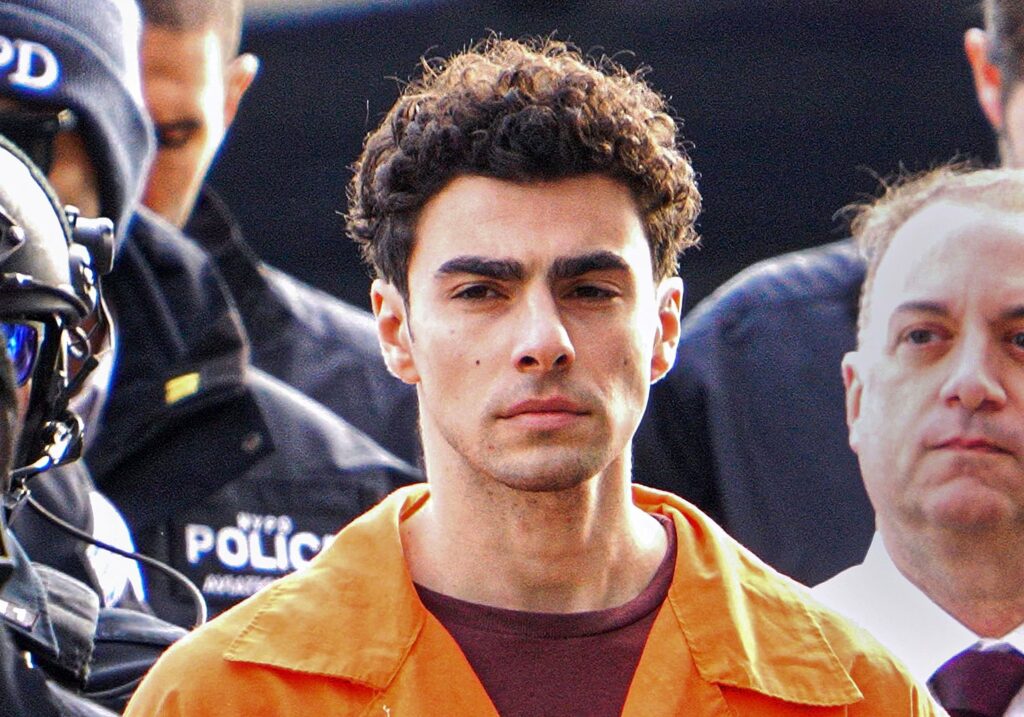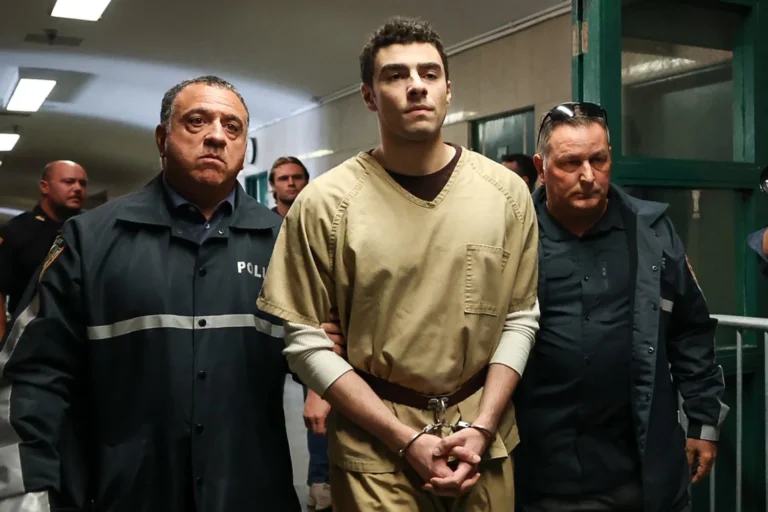Luigi Mangione, the suspected killer behind UnitedHealthcare CEO Brian Thompson’s murder, is no longer facing terrorism charges after a New York judge threw them out in court on Tuesday. Judge Gregory Carro allowed Mangione’s second-degree murder charge to remain in place while scaling back the most serious charges, which are two counts of terrorism.
According to reports, the charges were dismissed due to insufficient evidence to prove that the murder of UnitedHealthcare CEO Brian Thompson met the legal definition of terrorism. The New York terrorism law details that the crime must be committed with the intention to intimidate the general public or pressure government policy for it to be considered terrorism.
In Carro’s written decision, he said there was nothing to suggest Mangione made political demands or sought to influence government through coercion. Prosecutors had argued that Mangione’s writings showed a motive tied to anger at health insurance companies, which he described as corrupt.

Police also pointed to shell casings at the scene of the shooting marked with the words “deny”, “defend”, and “depose”, phrases critics link to industry tactics for denying claims. However, Carro said these details, while troubling, did not amount to terrorism under state law.
The decision removes the possibility of a first-degree terrorism-related murder conviction, which could have meant life in prison without parole. However, Mangione still faces second-degree murder, along with weapons and forgery charges in New York. A conviction on the murder count carries a minimum of 15 to 25 years in prison. The state trial is set to begin on December 1 after the judge denied defence requests to delay the proceedings until after federal charges are resolved.
Those federal charges raise the stakes significantly. Mangione is also accused in federal court of murder and stalking, and prosecutors there are seeking the death penalty. U.S. Attorney General Pam Bondi called the shooting a “cold-blooded assassination”, announcing that federal prosecutors would pursue the harshest penalty available. Mangione’s attorneys have criticised the move as political, saying their client is caught between competing state and federal cases.

The killing itself stunned both the business world and the public. Thompson, a father of two and the head of UnitedHealthcare’s insurance division, was in Manhattan for a meeting when he was gunned down early on December 4. Police launched a manhunt that ended five days later when Mangione was arrested at a McDonald’s in Altoona, Pennsylvania. At the time of his arrest, authorities said he carried a gun, ammunition, multiple fake IDs, and handwritten notes attacking corporate America.

Outside the Manhattan Supreme Court this week, a small group of Mangione’s supporters held signs declaring his innocence and calling for the 26-year-old’s release. Inside, prosecutors emphasised that the case remains strong, despite the dismissal of the terrorism charges.

